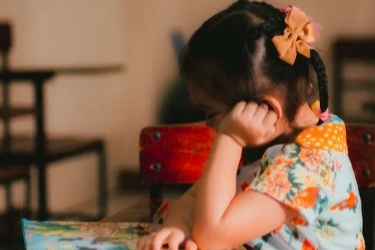
Why non-fiction reading is important
In our research (2022), more than half (56%) of children and young people told us that they read non-fiction. We also found that children and young people who read non-fiction are more engaged with environmental issues.
Overall, this report found that more children and young people who read non-fiction were motivated to read for educational purposes, to satisfy curiosities, to foster social connections and to support their mental wellbeing.
Read the full report on Children and young people's non-fiction reading.
Those who read non-fiction are more likely to want to take care of the environment compared with those who don't read non-fiction (68% vs 49%).
Celebrate Non-Fiction November
What is Non-fiction November?
This annual celebration of factual materials is a celebration of reading for information, to expand knowledge, and to explore individual interests.
This year, the theme for Non-Fiction November is Why Don't You? (Hobbies and Leisure).
Why celebrate Non-fiction November in your school?
As our research demonstrates, providing pupils with the opportunity to read and explore non-fiction plays a vital role in helping them to learn about their world, as well as fostering reading for pleasure. It is therefore essential that pupils have access to a high-quality and engaging non-fiction collection.
Our resources are designed to help you explore non-fiction with your class, and celebrate the different perspectives and enjoyment it brings.
Teaching resources and reading recommendations for Non-Fiction November 2024
To help you celebrate and promote non-fiction in your settings we have compiled compelling book recommendations based on the year's theme for you to explore, alongside practical guidance for using non-fiction in the classroom.
These resources are free to download from the file list below.
Non-fiction in the early years
The Early Years Foundation Stage (EYFS) statutory framework refers to non-fiction books and their role in enhancing language development and children's knowledge of the world around them. Our resources provide guidance on how to read and explore non-fiction texts with young children.
Non-fiction in the primary and secondary (KS3) classroom
Resources include:
- A booklist with cross-phase reading recommendations for ages 4 through to 14 (Reception KS1, KS2, KS3/Early, first, second, third levels). These explore the theme of Why Don't You? (Hobbies and Leisure), each including linked non-fiction writing ideas.
- Our non-fiction guidance for primary teachers, which highlights five fabulous approaches for inspiring learning through non-fiction texts.
Further non-fiction resources
- Free news literacy unit of work for pupils aged 9-11 years: NewsWise resources
For our premium members, we also have further resources to celebrate non-fiction November:
- A premium member resource: non-fiction recommended reads and writing ideas
- A premium member resource: non-fiction bumper book list for primary schools
- A premium member resource: Dictogloss strategy for improving non-fiction writing